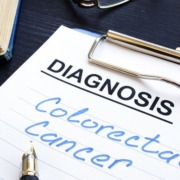Dr. Shahnaz Sultan: Pre-Endoscopy COVID-19 Testing Led to Disparities
Q: Is your team planning partnerships with any organizations or public health groups for future research or to raise awareness? What are the next steps to move your research forward?
The biggest thing we want to do is to bring our data back to our health system. In my capacity as the former Chair of the American Gastroenterology Association (AGA) Clinical Guidelines Committee, and lead author of several guidelines for gastroenterologists caring for patients during the COVID-19 pandemic, we specifically looked at this question of pre-procedure testing requirements and, initially, we believed there may be some value in testing depending on the prevalence of COVID-19. However, once the vaccines were approved and we looked at the data on infections among healthcare workers performing endoscopy, there was very little benefit to testing and a lot of concern about additional burden on patients. So, we made a conditional recommendation against pre-procedure testing. At that time, we polled gastroenterology members and asked them if they are still doing pre-procedure testing in their settings. Our target audience was not only people working in academic health systems, but also people working in private practice settings or ambulatory care centers, and there was a really big mix of responses: half of the members were still testing, and half were not.
I think we need to bring these data back to those systems and practices that are still requiring pre-procedure testing because the message should be that we really need to work on trying to get screening rates up to where they were before the pandemic. We really need to get rid of this barrier of pre-procedure testing to try to get to 80% participation rates, which is our goal, but instead, we are going in the opposite direction. We know that there are groups of patients and communities of individuals that have been experiencing worsening care and where we are increasing disparities.
Q: Were you able to find any trends in your data in terms of individuals who are being screened for the first time vs. those coming in for follow-up testing?
We didn’t look at that data, but that’s a very good question. The data in most settings show that people who initially had a prior colonoscopy had less fear, less mistrust, higher comfort levels, and more knowledge about the preparation and steps of a colonoscopy. No-show rates and cancellation rates tend to be higher for individuals who are getting their colonoscopy for the first time compared to those who are getting their follow-up colonoscopy.
Q: What is a general message you want people to understand about colonoscopies and CRC?
While we made a lot of advancements in our understanding of how CRC occurs and we made progress in terms of changing policies to help reduce copayments and additional burdens for patients, I think we have a long way to go. We don’t really have a good understanding of why we are seeing so much early-onset CRC, and we really need to focus on efforts on trying to make sure everyone is up-to-date with CRC screening because it is such a preventable disease. We still have a lot of work to do to decrease the overall burden of CRC and reduce CRC-related morbidity and mortality.
Q: In May 2021, the US Preventive Services Task Force (USPSTF) revised the CRC screening age for average-risk adults to 45 years. Disparities in screening rates can potentially extend to adults ages 45 to 49 as the new USPSTF recommendations are implemented. What do you think about these changes? What do you see in the clinic as these updated guidelines are being implemented, especially in the context of insurance coverage.
We were waiting to see how long it would be before that came into effect in Minnesota, and more importantly, how long it would take our providers to implement the guidelines and refer patients for CRC screening. A lot of our referrals come from primary care physicians, family physicians, and OB/GYNs.
What we have observed in Minnesota is our insurances are covering screening, providers are recommending screening, and patients are actually coming in to get their screening done, which is very exciting. We’ve seen a steady increase in the number of people within the 45-50 age group and within the 50-55 age group who come in for CRC screening. With the 50-55 age group, we’ve noticed that individuals get guilted or their age is used as leverage to come in to get screened sooner as the updated guidelines now recommend screening for adults ages 45 to 49. One additional detail I have noticed is that more women are coming to get screened at earlier ages compared to men. I think that there are still going to be hard-to-reach communities that will need more intentional outreach, but overall, it is a good trend to see more people coming in to get their screening done sooner.
Sahar Alam is a Colorectal Cancer Prevention Intern at the Colon Cancer Foundation.







Leave a Reply
Want to join the discussion?Feel free to contribute!